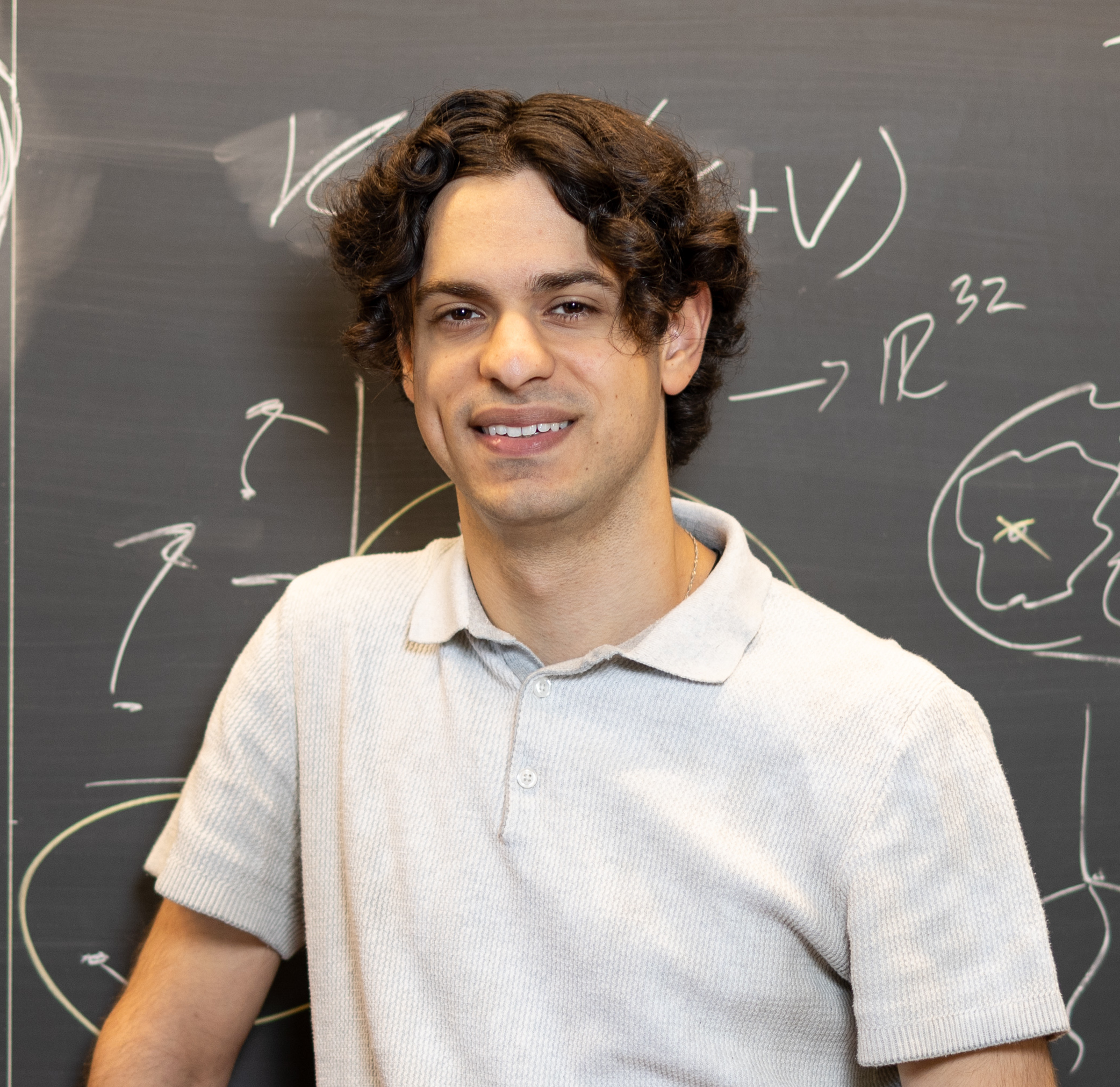
George Stepaniants
NSF Postdoctoral Fellow
Caltech Computing + Mathematical Sciences
About Me
In 2025-2027, I am looking for tenure-track positions in applied and computational mathematics, data science and statistics, and engineering departments.
I am an NSF MSPRF postdoctoral fellow at the California Institute of Technology in the Department of Computing and Mathematical Sciences working with Prof. Andrew Stuart.
I received my PhD from the Massachusetts Institute of Technology (MIT) in 2024 in the Department of Mathematics co-advised by Prof. Philippe Rigollet and Prof. Jörn Dunkel funded by the NSF GRFP and MIT Presidential Fellowship.
I was also part of the Interdisciplinary Doctoral Program in Statistics (IDPS) through the Institute for Data, Systems, and Society (IDSS).
Prior to MIT, I graduated in 2019 from the University of Washington (UW) with a Bachelors of Science in Mathematics and Computer Science where I performed research in the Department of Applied Mathematics with Prof. Nathan Kutz.
I develop methods to learn mathematical and physical laws from simulated and experimental data, using numerical analysis, mechanics, statistics, and machine learning to design approaches that succeed in data-limited regimes and embody correct inductive biases for scientific data. My teaching philosophy is inspired by my research, showing students how to discover interesting mathematical ideas in field-specific literature, translate them into well-posed theories, and when possible, bring these theories to life as numerical algorithms and reproducible code.
Research Mission
How do we develop physically faithful models when data are (I) collected from disparate sources, (II) sample-limited and noisy, or (III) partial observations of a larger system? My research addresses these questions in three thrusts:
- (I) Development of optimal transport techniques for alignment and pooling of scientific data from disparate sources, with rigorous finite-sample guarantees
- (II) Advancement of inference methods to learn governing physical laws from data in noisy and data-sparse regimes, with theoretical approximation bounds and statistical rates
- (III) Design of memory-dependent (autoregressive) and higher-order models, as a way of compensating for incomplete observability in time-dependent systems
The methodological and theoretical developments in these three thrusts are guided by my work in specific application domains including biochemistry, materials science, and fluid mechanics.
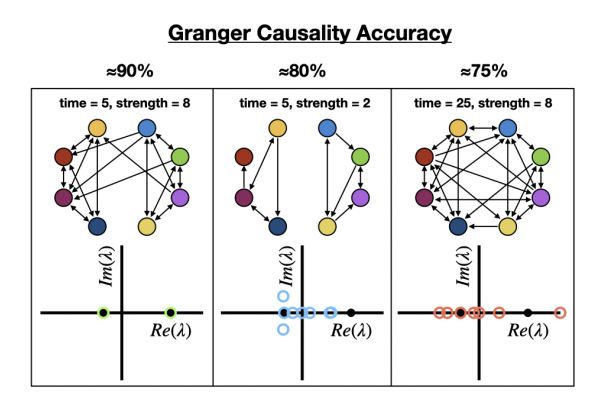
Scientific Modeling
See projects
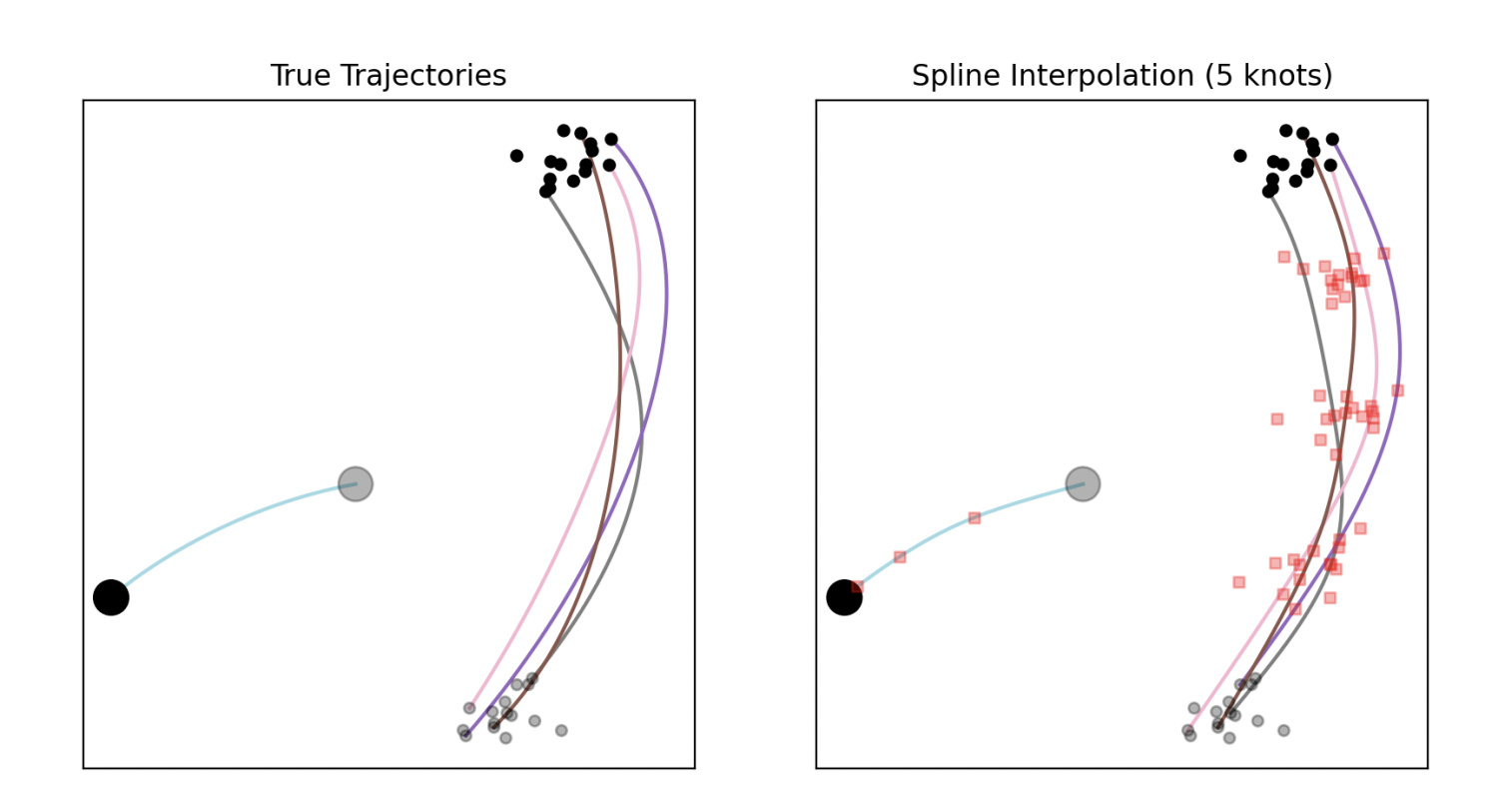
Optimal Transport
See projects
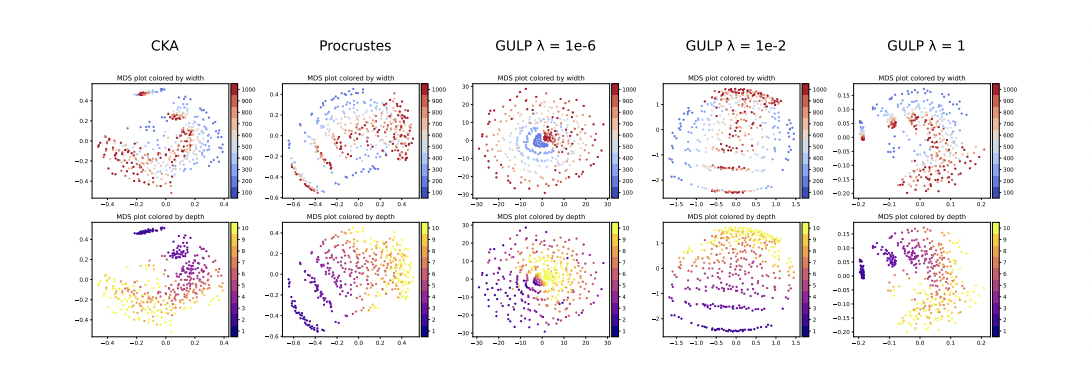
Deep Learning
See projects
Education
University of Washington,
Seattle
BSc (2015-2019)
Math and Computer Science Double Major
Massachusetts Institute
of Technology
PhD (2019-2024)
NSF GRFP Graduate Student in Mathematics and Statistics
California Institute
of Technology
Postdoc (2024-Present)
NSF MSPRF Postdoctoral Researcher
at Computing + Mathematical Sciences
News Highlights
Invited Speaker at Banff BIRS Workshop (Efficient and Reliable Deep Learning)
Jun 2025
NSF Mathematical Sciences Postdoctoral Research Fellow (MSPRF)
Sep 2024
IMS Lawrence D. Brown Ph.D. Student Award Recipient (3 recip. nationwide)
Sep 2024
Invited Speaker at Fields Institute Symposium (Machine Learning and Dynamical Systems)
Jun 2025
NSF Graduate Research Fellow (GRFP)
Sep 2019
Presented at Armenian Statistics Summer School under Calouste Gulbenkian Travel Grant
Jun 2023
Invited Speaker at CIRM (Meeting on Mathematical Statistics)
Dec 2021
MIT Presidential Fellow
Sep 2019
Elected to Phi Beta Kappa Honors Society
Jun 2019
Research
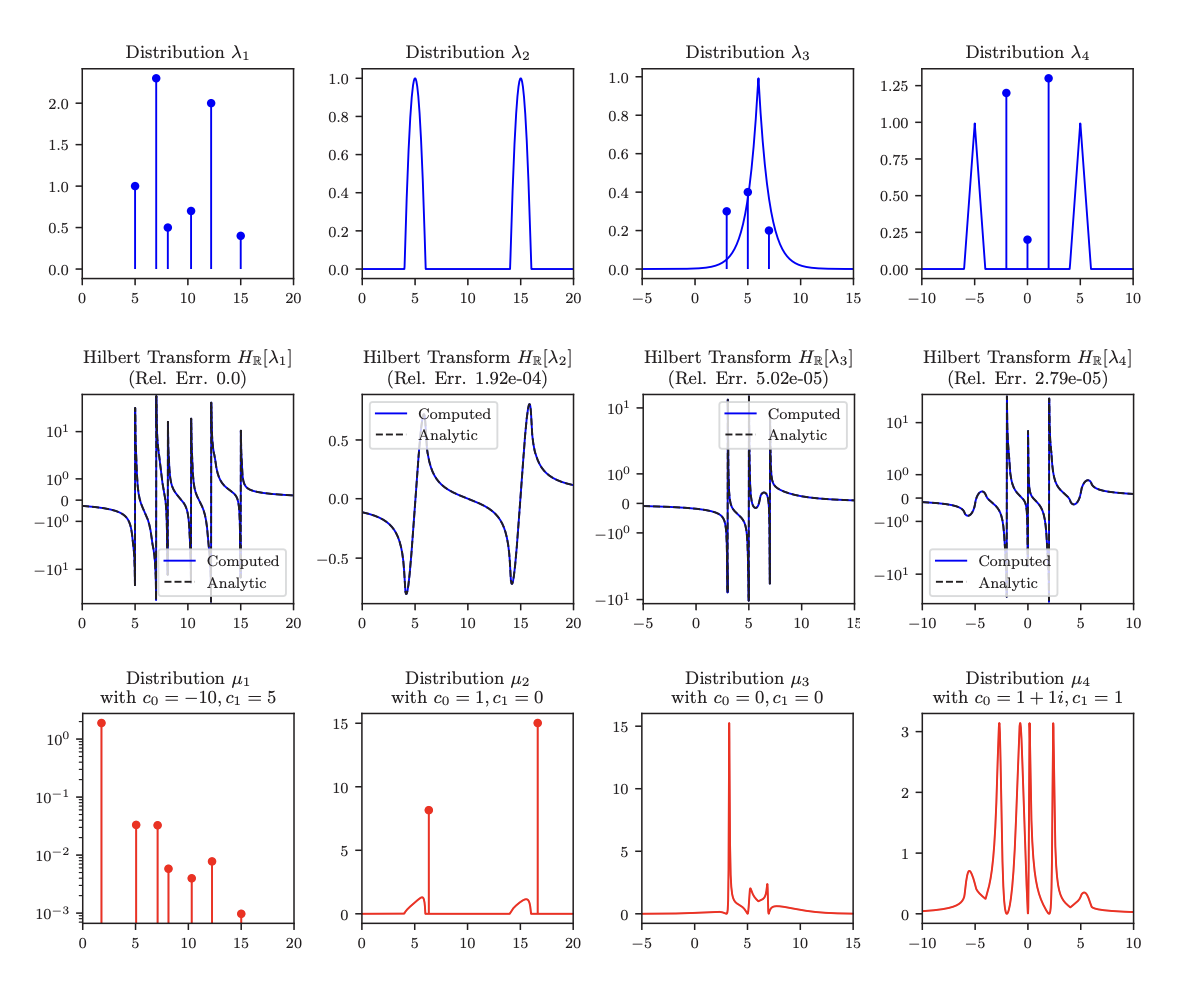
A Spectral Theory of Scalar Volterra Equations
David Darrow, George Stepaniants
arXiv, 2025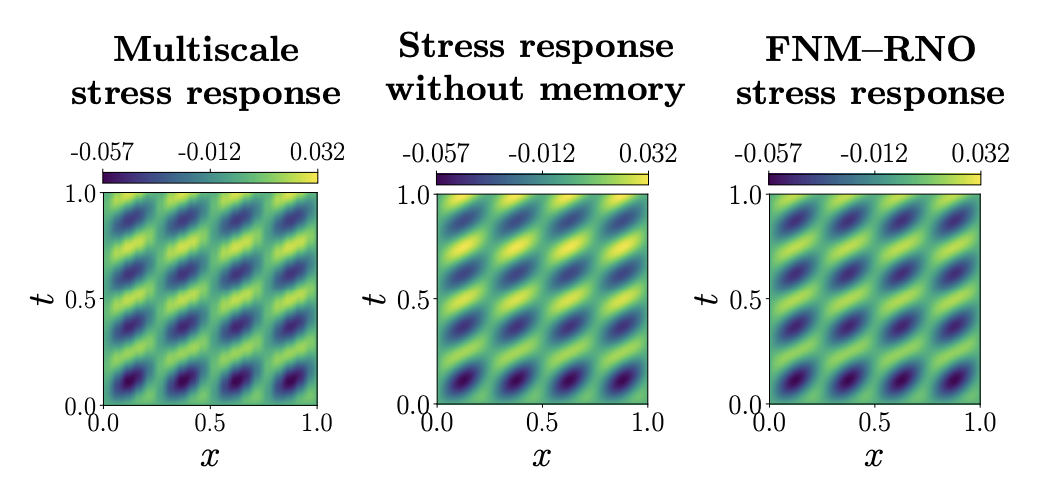
Learning Memory and Material Dependent Constitutive Laws
Kaushik Bhattacharya, Lianghao Cao, George Stepaniants, Andrew Stuart, Margaret Trautner
arXiv, 2025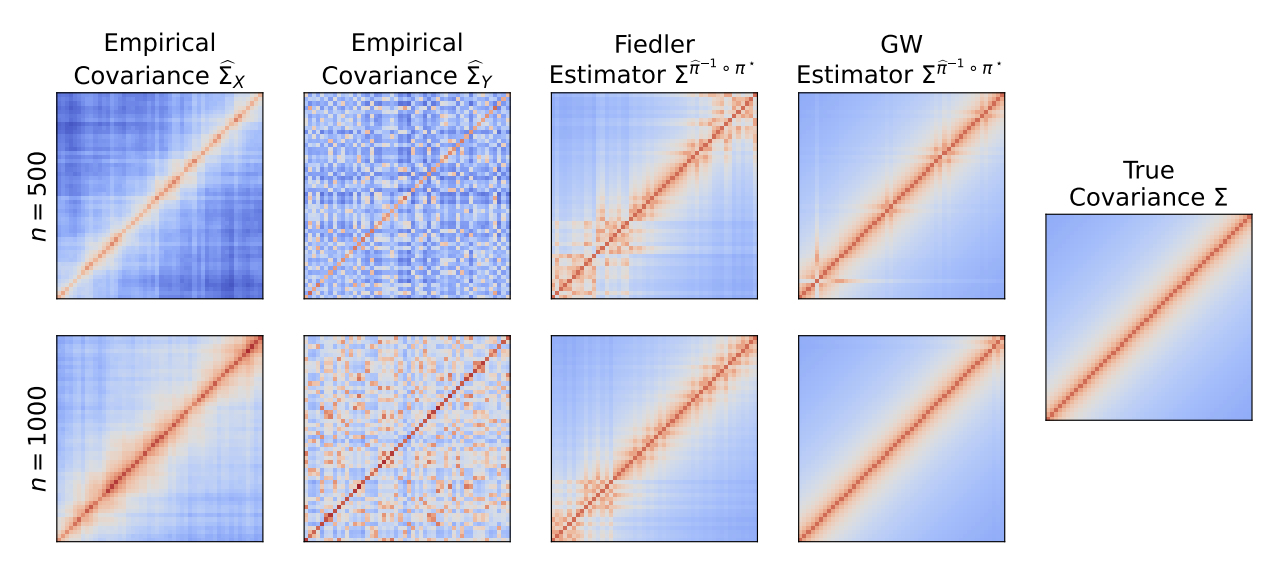
Covariance alignment: from maximum likelihood estimation to Gromov-Wasserstein
Yanjun Han, Philippe Rigollet, George Stepaniants
SIMODS, 2024
Optimal transport for automatic alignment of untargeted metabolomic data
Marie Breeur, George Stepaniants, Pekka Keski-Rahkonen, Philippe Rigollet, Vivian Viallon
eLife, 2024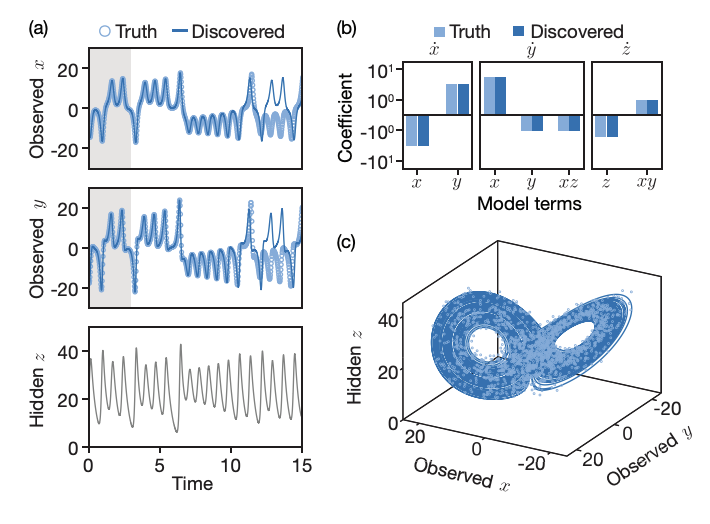
Discovering dynamics and parameters of nonlinear oscillatory and chaotic systems from partial observations
George Stepaniants, Alasdair D. Hastewell, Dominic J. Skinner, Jan F. Totz, Jörn Dunkel
PRR, 2024
Learning Partial Differential Equations in Reproducing Kernel Hilbert Spaces
George Stepaniants
JMLR, 2023
GULP: a prediction-based metric between representations
Enric Boix-Adsera, Hannah Lawrence, George Stepaniants, Philippe Rigollet
NeurIPS, 2022
Fast and smooth interpolation on Wasserstein space
Sinho Chewi, Julien Clancy, Thibaut Le Gouic, Philippe Rigollet, George Stepaniants, Austin Stromme
AISTATS, 2021
Inferring causal networks of dynamical systems through transient dynamics and perturbation
George Stepaniants, Bingni W Brunton, J Nathan Kutz
Physical Review E, 2020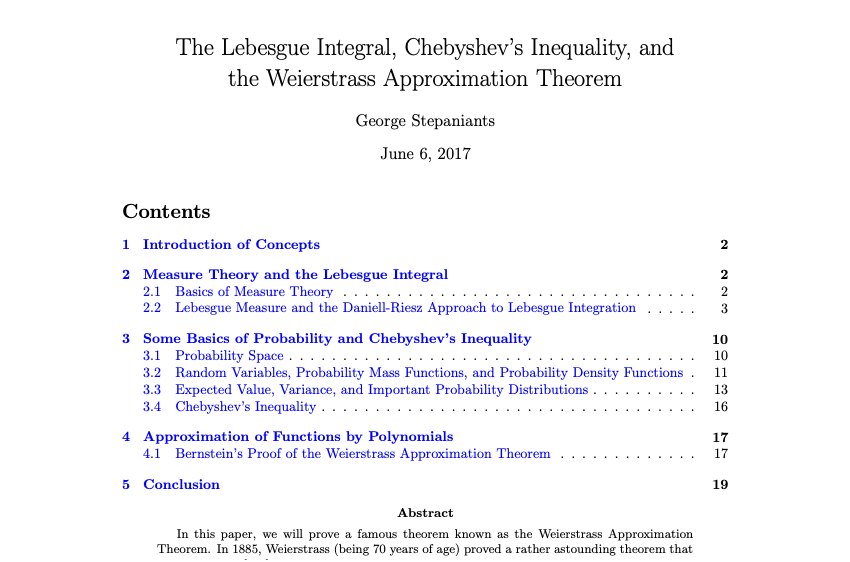
The Lebesgue Integral, Chebyshev's Inequality, and the Weierstrass Approximation Theorem
George Stepaniants
Undergraduate Academic Report, 2017Teaching Philosophy
My goal as an educator is to teach students how to work on the interface of different disciplines and leverage tools from mathematical theory in physics, life sciences, probability theory, and statistics to solve their problems. My teaching philosophy is to train students to
- (1.) Identify promising ideas or undeveloped theories in domain-specific literature
- (2.) Translate these ideas into precise theoretical frameworks
- (3.) Bring these frameworks to life as numerical algorithms and reproducible code
I am dedicated to mentoring and student outreach, and am taking important steps in education, research mentorship, and outreach in academia as well as in my local communities. I continue to expand my outreach and service in communities that historically have had less access to education in mathematics and science.
Instructor of Record
ACM 270 Data-Driven Modeling of Dynamical Systems
Teaching Assistant
18.032 Differential Equations
18.600 Introduction to Probability
Mentorship and Outreach
(SURF) California Institute of Technology
A Signature-Based Approach for System Identification and Control: Applications and theory for signature transform methods in open-loop control of dynamical systems.
Summer 2025
(WAVE) California Institute of Technology
A Study of Network Inference Methods: Information-theoretic and deep learning methods for inference of networked dynamical systems.
Summer 2025
(MCM) California Institute of Technology
- (Honorable Mention) Gautham Kappaganthula, Constantin Cedillo-Vayson de Pradenne, Colin La
- (Successful Participant) Joseph Pieper, Sujay Champati, Dhruv Verma
- (Successful Participant) James Hou, Aman Burman, Abhiram Cherukupalli
Fall 2024
(Mentor) California Institute of Technology
Mentored research reading and project in data-driven dynamical systems inference algorithms based on the method of characteristics.
Fall 2024
(SPUR+) Massachusetts Institute of Technology
Modeling International Trade and Tariffs: Study of large trade and tariffs dataset across 200 world countries, investigating the use of spectral and graph wavelet decompositions for analysis of temporal trade network data.
Summer 2023 - Fall 2023
(DRP) Massachusetts Institute of Technology
Guided reading of two undergraduate students in graduate dynamical systems text ”Stability, Instability and Chaos” by Paul Glendinning over the course of the summer. Prepared students to present their knowledge of the text in a final presentation at the end of summer.
Summer 2023
(Mentor) Massachusetts Institute of Technology
Guided research readings with two MIT undergraduates on optimal transport and adjoint methods for inference of stochastic dynamical systems and networked dynamical systems.
Summer 2023
(UROP) Massachusetts Institute of Technology
Optimal Transport for Protein Folding: Studying how optimal transport and Gromov-Wasserstein methods can be used to predict the three-dimensional structure of proteins.
David Darrow awarded 2022 Churchill Scholarship
Fall 2021 - Spring 2021
(Community Service) University of Washington
2015 - 2019
2015 - 2016
Service and Leadership
2025 - 2026
2025
2025
2025
2020
2015 - 2019
2015 - 2019
Professional Membership
2024 - Present
2020 - Present
2019 - Present
Employment
Sep 2024 - Jun 2027
California Institute of Technology (Posdoctoral Scholar)
NSF Mathematical Sciences Postdoctoral Research Fellow (MSPRF)
Department of Computing and Mathematical Sciences (CMS)Postdoctoral Advisor: Andrew Stuart
Education
Sep 2019 - Jun 2024
Massachusetts Institute of Technology (PhD)
Department of Mathematics and Institute for Data, Systems, and Society (IDSS)PhD Advisors: Philippe Rigollet and Jörn Dunkel
Thesis: Inference from limited observations in statistical, dynamical, and functional problems
GPA: 4.9/5.0
Sep 2015 - Jun 2019
University of Washington, Seattle (BSc)
Department of Mathematics and Department of Computer Science (double major)Undergraduate Research Advisors: Nathan Kutz and Bing Brunton
Research Topic: Inferring causal networks of dynamical systems through transient dynamics and perturbation
GPA: 3.87/4.00
Academic Awards
NSF Mathematical Sciences Postdoctoral Research Fellowship (MSPRF)
Sep 2024 - Jun 2027
IMS Lawrence D. Brown Ph.D. Student Award Recipient
Sep 2024
NSF Graduate Research Fellowship (GRFP)
Sep 2019 - Jun 2024
SIAM Student Travel Award
Dec 2023
Calouste Gulbenkian Foundation Short Term Conference and Travel Grant
Jun 2023
MIT Presidential Fellow
Sep 2019 - Jun 2020
Phi Beta Kappa Honors Society Member
Jun 2019
Mary Gates Research Scholarship (merit-based)
Jun 2019
University of Washington Dean's List
Jun 2016 - Aug 2016
University of Washington Early Acceptance at 16 (UW Academy)
Sep 2015
Publications
Thesis
Manuscripts in Review
Journal Articles
Conference Proceedings
In Preparation
Talks and Presentations
Organized Symposia
“Minisymposium on Data-driven Methods for Multiscale Modeling and Homogenization”, SIAM Conference on Computational Science and Engineering, Fort Worth, March 2025
“Minisymposium on Data-Driven Learning of Dynamical Systems from Partial Observations”, SIAM Conference on Mathematics of Data Science, Atlanta, October 2024
Invited Talks
“Volterra Integral Equations and Memory Dependent Constitutive Laws”, UC Irvine Applied & Compu- tational Math Seminar, Irvine, October 2025
“Learning Memory and Material Dependent Constitutive Laws”, Surrogates and Dimension Reduction in Scientific Machine Learning, Manchester University, September 2025
“Alignment of Untargeted Data through their Covariances: A Novel Perspective on a Classical Tool in Optimal Transport”, Joint Statistics Meeting, Nashville, August 2025 (One of 3 PhD students selected for the prestigious IMS Lawrence D Brown PhD Student Award)
“A Spectral Theory of Volterra Equations: Applications to Learning of Material Laws”, Efficient and Reliable Deep Learning Methods and their Scientific Applications, Banff BIRS Centre, June 2025
“Learning Dynamics of Hidden Variables in Multiscale Viscoelastic Materials”, SIAM Conference on Applications of Dynamical Systems, Denver, May 2025
“A Spectral Theory of Scalar Volterra Equations”, Dartmouth Applied & Computational Math Seminar, Dartmouth, March 2025
“A Spectral Theory of Scalar Volterra Equations”, Applied Math Physical Mathematics Seminar, Cambridge, March 2025
“Learning Memory and Material Dependent Constitutive Laws”, Differential Equations for Data Science, Kyoto University, February 2025
“Discovering dynamics and parameters of nonlinear oscillatory and chaotic systems from partial observations”, Fourth Symposium on Machine Learning and Dynamical Systems, Fields Institute, July 2024
“Covariance Alignment with Optimal Transport”, Yale Applied Mathematics Seminar, New Haven, April 2024
“Gromov-Wasserstein Theory and Application to Metabolomics”, SIAM Conference on Uncertainty Quantification, Trieste, Italy, February 2024
“Gromov-Wasserstein Theory and Application to Metabolomics”, Statistics and Learning Theory Summer School, Tsaghkadzor, Armenia, July 2023 (One of 7 invited speakers)
“Optimal transport for automatic alignment of untargeted metabolomic data”, Harvard Applied Math Graduate Student Seminar, Cambridge, March 2023
“Learning PDEs in a Reproducing Kernel Hilbert Space”, SIAM Conference on Mathematics of Data Science, San Diego, September 2022
“Learning PDEs in a Reproducing Kernel Hilbert Space”, Meeting on Mathematical Statistics, CIRM, Marseille, December 2021 (Only 3 graduate student speakers invited)
Contributed Talks
“Discovering dynamics and parameters of nonlinear oscillatory and chaotic systems from partial observations”, Dynamics Days, UC Davis, January 2024
“Learning and predicting complex systems dynamics from single-variable observations”, APS March Meeting, Chicago, March 2022
“Learning PDEs in a Reproducing Kernel Hilbert Space”, LIDS Stats & Tea, MIT, December 2021
“Inferring causal networks of dynamical systems through transient dynamics and perturbation”, Econometrics Lunch, MIT, December 2021
“Fusion of Genetically Incompatible Fungal Cells”, UCLA Computational and Applied Math REU Presentation, IPAM, August 2018
“Quantifying Rupture Risk of Brain Anuerysms”, MATDAT18: NSF Materials and Data Science Hackathon, Alexandria, June 2018
https://matdat18.wordpress.ncsu.edu/files/2018/06/Team12.pdf“Hyperparameter Selection”, AI2 Research Internship Final Presentation, Seattle, August 2017
“Beaker Experimentation Platform”, AI2 Research Internship Midterm Presentation, Seattle, August 2017
“Image Analysis in Parkinson's Research”, Pfizer Research Internship Final Presentation, Cambridge, August 2016
Poster Presentations
“Covariance alignment: from maximum-likelihood estimation to Gromov-Wasserstein”, Cornell ORIE Young Researchers Workshop, Cornell, October 2023
“Inferring causal networks of dynamical systems through transient dynamics and perturbation”, Undergraduate Research Symposium, UW, June 2019
Internship and Research Experience
Jul 2018 - Aug 2018
Computational and Applied Math Research Experience for Undergrads (REU) at UCLA
Undergraduate Researcher in Mycofluidics LabJun 2017 - Sep 2017
Engineering Intern at Allen Institute for Artificial Intelligence (AI2)
Full Stack Development and Data Analysis/VisualizationAug 2016 - Dec 2016
Natural Language Processing Intern at ABBYY
Parser Accuracy ScoringJun 2016 - Aug 2016
Image Analysis Intern at Pfizer
Imaging Algorithms for Automated Brain Slice ImagingProgramming Languages
Python
92%
Matlab
90%
Julia
85%
R
80%
Computational Skills
Image Analysis
AutoDiff (PyTorch)
Cluster Computing
Numerical Analysis
Data Visualization
Adobe Illustrator
Hobbies
- Reading
- History
- Guitar
- Jazz
- Records
- Dancing
- Coffee
Contact
Fill out the contact form below to send me an email.